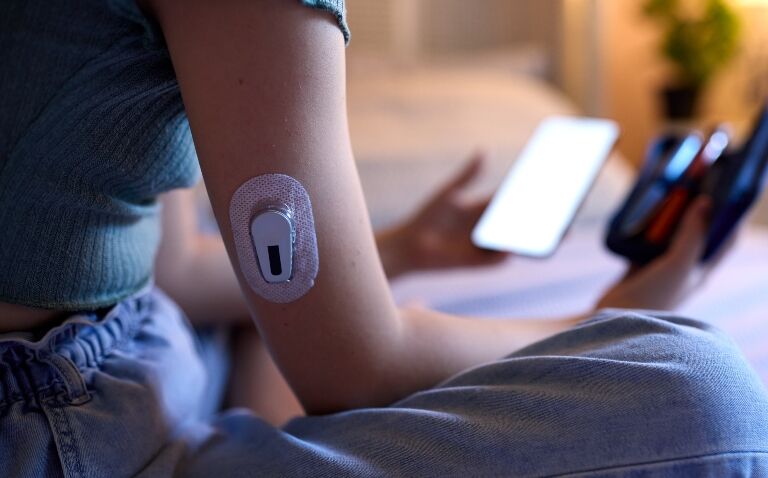NICE has recommended the use of ‘game changer’ wearable technology to help patients manage type 1 diabetes.
Hybrid closed loop systems allow insulin to be delivered automatically to the body, keeping blood glucose at a healthy level. This technology includes a continuous glucose monitor sensor which transmits data to an insulin pump, both of which are worn on the body.
The final draft guidance published by NICE said hybrid closed loop systems should be offered to people whose current device is not controlling their diabetes.
NICE and NHS England have agreed that this wearable technology will be rolled out over a five-year period in order to allow for trusts to employ the extra staff needed and for specialist training for both patients and staff to be completed.
The technology will be offered first to all children and young people, women who are pregnant or planning a pregnancy, and those who already have an insulin pump. It is also recommended more widely for adults with an average HbA1c reading of 7.5% or more.
The draft guidance on hybrid closed loop systems for managing blood glucose levels in type 1 diabetes, which is due to be published in its final format in December, evaluated clinical trial evidence showing that these systems are ‘more effective than standard care at maintaining blood glucose levels within a healthy range’.
The hybrid closed loop wearable technology allows patients to continue daily life without needing to regularly conduct finger prick testing or insulin injections.
There are around 270,000 people in England and 16,000 people in Wales living with type 1 diabetes, according to NHS data.
Patients will only be able to access this wearable technology with the support of a trained multidisciplinary team experienced in continuous subcutaneous insulin infusion.
Professor Jonathan Benger, chief medical officer at NICE, highlighted the importance of focusing on ensuring best value for money for diabetes technology since the disease takes up around 10% of the NHS budget.
He said: ‘Using hybrid closed loop systems will be a game changer for people with type 1 diabetes.
‘By ensuring their blood glucose levels are within the recommended range, people are less likely to have complications such as disabling hypoglycaemia, strokes and heart attacks, which lead to costly NHS care.
‘This technology will improve the health and wellbeing of patients, and save the NHS money in the long term.’
NHS England’s national specialty advisor for diabetes Professor Partha Kar said the NICE recommendation is ‘amazing news’ for people living with type 1 diabetes.
He said: ‘This tech might sound sci-fi like but it will have a dramatic impact on the quality of people’s lives, not to mention outcomes – it is as close to the holy grail of a fully automated system as science can provide at the moment, where people with type 1 diabetes can get on with their lives without worrying about glucose levels or medication.’
Colette Marshall, chief executive of the charity Diabetes UK, said: ‘We’re excited to welcome these recommendations which broaden access to the technology for key groups including children and young people, recognising our comments to the consultation earlier this year.
‘However, funding to roll out this technology to the people that need it is of paramount importance and we reiterate the campaign call we made last month for Government and the NHS to agree this.
‘We’ll also be working with the NHS to help ensure that everyone who could benefit from this technology has access to it as soon as possible in the phased rollout that has been agreed to achieve this.‘
A version of this article was originally published by our sister publication Pulse.










